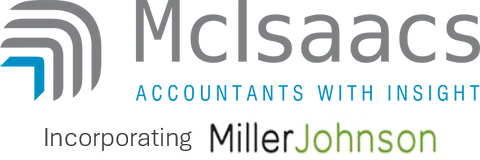Budget 2017
Last month the Government published the 2017 budget. The budget didn't show any tax surprises and most changes apply from 1 April 2018.
Below is a brief summary of the changes. If you would like to know more detail of these changes and if they impact your business or you personally, please contact us on 414 4050.
Changes to Tax Thresholds and the Independent Earner Tax Credit
1. From 1 April 2018, the $14,000 income threshold will increase to $22,000, and the $48,000 threshold to $52,000. Income tax thresholds.
Table 1: Current and new personal income tax thresholds
| Current Bracket ($) | New Bracket ($) | Rate |
|---|---|---|
| 1-14,000 | 1-22,000 | 10.5% |
| 14,001-48,000 | 22,001-52,000 | 17.5% |
| 48,001-70,000 | 52,001-70,000 | 30% |
| 70,001+ | 70,001+ | 33% |
2. The Independent Earner Tax Credit, which is a maximum of $520 a year ($10 per week), will be discontinued. It is currently available to individuals with taxable income between $24,000 and $48,000 who are not eligible to receive benefits, New Zealand Superannuation or Working for Families tax credits.
Changes to Working For Families
From 1 April 2018, two elements of Working For Families will change:
1. The Family Tax Credit rates for children aged under 16 are increasing, so that they align with the rates for children aged 16 to 18 years.
| Annual rate | Current | 1 April 2018 |
|---|---|---|
| Eldest child, 16-18 | $5,303 | $5,303 |
| Eldest child, 1-15 | $4,822 | $5,303 |
| Subsequent child, 16-18 | $4,745 | $4,745 |
| Subsequent child, 13-15 | $3,822 | $4,745 |
| Subsequent child, 0-12 | $3,822 | $4,745 |
2. The abatement rate for Working for Families Tax Credits will be increased from 22.5 cents to 25 cents in the dollar. The abatement threshold will decrease from $36,350 a year to $35,000 a year. Inland Revenue and Work and Income will contact Working for Families recipients in February 2018 to inform them of their likely entitlement for the 2018-19 tax year.
Black Hole Expenditure
Black hole expenditure is generally the cost of investigating the viability of a new proposal or project, like feasibility expenditure which is not tax deductible.
The government proposes that this type of expenditure would become tax deductible where no asset is created on the balance sheet. Where an asset is created on the balance sheet, they propose that the feasibility expenditure would be capital expenditure for tax purposes.
There is a proposed clawback section, whereby if a taxpayer subsequently reverses it's decision to impair the asset, the taxpayer would have to return as income any amount previously deducted under the proposal.
This change is currently open for public feedback, but we will keep you updated when the bill is passed.
Takapuna Office
Ground Floor, Takapuna Finance Centre
159 Hurstmere Road
P O Box 331 626
Takapuna, Auckland


